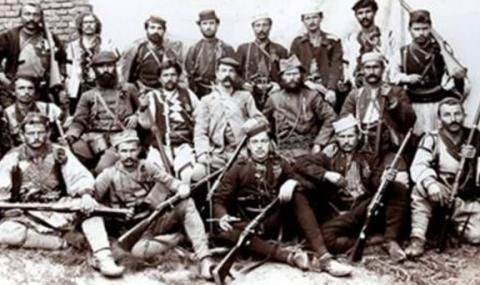On October 19, 1925, in the Demir area, Bulgarian border guards dug a well. The Greek sentinels did not correctly judge the action they were doing and thought they were digging a trench – something they have no right to do. At 2:30 p.m., a Greek border guard unceremoniously headed towards them, entering Bulgarian territory. The Bulgarian watchman Radoi Georgiev shot at the intruder and killed him. A firefight began, in which another Greek soldier was wounded, who later also died, reports the site „ Bulgarian history“.
The Bulgarian government insists that the case be resolved civilly
by setting up a commission with representatives from both sides to investigate the case, find out who is guilty and punish them. The Greek Prime Minister refuses. He sees the right moment to attack Bulgaria. On October 22, 1925, without declaring war, General Pangalos ordered the VI Greek Division, located near Siar, to invade Bulgaria. It crosses our southern border, stretched across a 40 kilometer wide front. The Fourth Army Corps was ordered to move from Drama and Kavala to the town of Nevrokop (today Gotse Delchev). The size of the Greek army reached nearly 100,000 soldiers. Facing it are the Bulgarian border guards, who, according to the Treaty of Neuilly, are in a reduced composition and number 300 people. In a short time, the villages were captured: Kulata, Chucholigovo, Marino pole, Dolno Spanchevo, Novo Khodjovo, Piperitsa, Lehovo, Topolnitsa, Marikostinovo, Kartechno.
Bulgaria is facing a fateful decision. The question is whether to counter the Greek aggression with force, or to seek a diplomatic solution. The government decided to act on the second option, and as seen later, this was the right choice.
The Bulgarian government, headed by Alexander Tsankov,
immediately inform the UN Secretariat in Geneva about the Greek aggression.
To the area where the invasion took place, the Minister of War, General Ivan Valkov, sent reinforcements consisting of 6 infantry, 3 machine gun companies with 4 mountain and 8 field guns, the total number of which amounted to only about 1,000 soldiers. The sent Bulgarian army was expressly ordered to resist the Greeks only if absolutely necessary. Another task that the government takes on is to evacuate the Bulgarians from the threatened areas.
Meanwhile, the Greek soldiers begin looting what they can, which slows their advance. This enables the Bulgarian troops to entrench themselves in the area of the General Todorov station and the Rupite area. The Greek delay also allowed the region's strong VMRO organization to send reinforcements to Petrich. There were attacks on the city as early as October 22-23, but the most serious took place on the 25th of the same month.
The local residents, supported by the detachments of the VMRO,
managed to repel the Greeks several times.
On October 27, a note arrived from the UN to Bulgaria and Greece, in which both countries were insisted to cease any military actions. The council of the organization immediately sends the military attachés of France, Great Britain and Italy to see if the pledges are fulfilled. On October 28, the Greek government officially ordered its army to withdraw from Bulgarian lands.
On October 29, 1925, after the Greek army was already within the borders of its country, the UN appointed a commission of inquiry chaired by the British ambassador to Spain, Horace Rumbold, and members - General Serini from France, General Ferrario from Italy, Adler Kreutz from Switzerland and Droglever Fortuyn from the Netherlands. The purpose of the commission is to study the situation of the affected areas in order to determine the value of the compensation that should be paid to Bulgaria. It was established that the Greeks were guilty of burning 12 Bulgarian villages. The victims on the Bulgarian side amounted to 4 soldiers and 5 citizens killed, 2 officers, 9 soldiers and 10 citizens, 3 women and 2 children wounded, and 11 soldiers missing without a trace. There are no official figures for the Greek victims. According to Ivan Mihailov, they amount to over 120 killed soldiers.
The survey commission makes a decision on
Greece to pay Bulgaria compensation in the amount of BGN 30 million.
Thus ends this short war, which is called “incident“.
The amount owed has been paid, and BGN 1,200,000 goes to the victims of the city of Petrich. Surprisingly, they renounced the personal compensation and decided to give the money for the construction of a building for the high school, which until then was housed in a private house. In 1926, construction began, but the money proved insufficient, and the citizens of the city donated their own funds, and so the building was completed.
On October 31, 1937, at the celebrations on the occasion of the 25th anniversary of the liberation of Petrich from Turkish slavery, the first historical monument in the city was opened. On one of his memorial plaques are written the names of those who died in the defense of the city from the Greeks. Although they participated in a conflict forgotten by history, those who gave their lives for the homeland are immortalized.
October 19, 1925. Greece attacks Bulgaria (VIDEO)
The Petrich incident almost ignited the Third Balkan War
Oct 19, 2024 03:15 1 032
